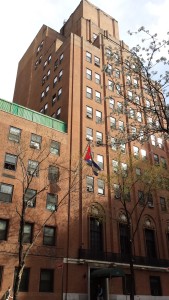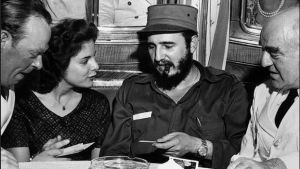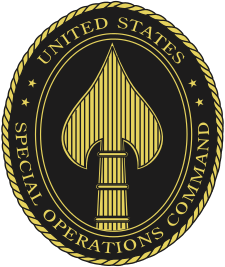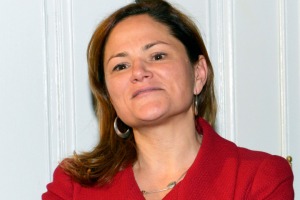Talk Grows of Taking Cuba off Terror List: Kerry reviewing policy that could pave way for renewed relations
By Bryan Bender, (Boston) Globe Staff
WASHINGTON — High-level US diplomats have concluded that Cuba should no longer be designated a state sponsor of terrorism, raising the prospect that Secretary of State John F. Kerry could remove a major obstacle to restoring relations with the Cold War-era foe, government officials said. Cuba no longer actively supports terrorist groups such as the Revolutionary Armed Forces of Colombia, known as the FARC, or former members of Spain’s Basque Fatherland and Liberty, also known as the ETA, according to State Department findings. And interviews with a series of top administration officials and members of Congress indicate there is a growing consensus in policy and intelligence circles that Cuba’s support for terrorist groups has been terminated and the country should be removed from the list — much like the George W. Bush administration did with North Korea in 2008.
Kerry has met in recent days with officials to review the Cuba policy. The pressure to de-list Cuba as a terrorism sponsor comes as a bipartisan congressional delegation traveled to Cuba this week to discuss how the two estranged nations might find ways to lift a US embargo in place for five decades and cooperate on a host of economic, agricultural, and security matters. But the delegation, which included Representative James P. McGovern of Worcester, left Cuba on Wednesday after failing in its immediate goal: to win the release of an American prisoner, Alan Gross. The nearly four-year standoff over Gross is among a number of matters holding up efforts to improve relations.
But despite that failure, the meetings were constructive, and the tone promising, McGovern said in a phone interview, after meeting with President Raul Castro in Havana on Tuesday. “They are interested in improving relations because it is in their interest. I feel they are really interested in sitting down and engaging, where everything is on the table — the embargo, the travel restrictions, migration, everything,” McGovern said. The Gross case, he said, can be resolved, but it is “going to take some negotiations.” Gross is an American contractor who was arrested in 2009 while providing communications technology to Cuba’s Jewish community as part of a US-financed democracy-building program.
A major impediment to normalizing relations with Cuba, according to McGovern and others, is that Cuba has been listed by the State Department each year since 1982 as a sponsor of terrorist groups. Yet that is a view no longer held by a number of senior US officials. Even North Korea, which the Obama administration has criticized for conducting nuclear tests and making threatening comments toward the United States, is not listed as a terrorism sponsor. That contrast is one reason for calls within the State Department to consider taking Cuba off the list.
“There is a pretty clear case . . . that they don’t really meet the standard anymore,” said a senior administration official with direct knowledge regarding US-Cuba policy who was not authorized to speak publicly. “They have neither the wherewithal nor are they doing much.” In addition to Cuba, the list of terrorist sponsors includes Syria, Sudan, and Iran. Inclusion imposes strict sanctions. For example, it prohibits the United States from selling arms, providing economic assistance, and restricts financial transactions between citizens. Countries that were removed from the list in recent years include North Korea, Libya, and Iraq.
The United States initially cut off diplomatic relations in 1961, and later put in place a trade embargo. Cuba served as a satellite for the Soviet Union and flash point of the Cold War, most famously in 1962 when Russia placed nuclear missiles on the island. The Cuban government also armed and trained Marxist revolutionaries across Latin America and Africa during the 1970s and 1980s.
US officials emphasized that there has not been a formal assessment concluding that Cuba should be removed from the terrorism list and said serious obstacles remain to a better relationship, especially the imprisonment of Gross.
Cuba has said it would release the 63-year-old in exchange for the so-called Cuban Five, convicted Cuban intelligence operatives being held by the United States. The Obama administration, however, has publicly refused to entertain such a trade, and officials said there is unlikely to be significant improvement in the relationship until Gross is released. But Kerry, who played a key role in normalizing relations with communist Vietnam in the early 1990s, is seen as particularly receptive to new ways to change a relationship many believe to be a relic of the Cold War. Recalling his work on Vietnam, Kerry published an article in 2009 in the St. Petersburg Times in Florida, where the Cuba issue remains politically charged. His article called for a lifting of all travel restrictions.
The result of normalized relations with Vietnam has produced a former foe “that is less isolated, more market-oriented, and, yes, freer. . . . Yet when it comes to a small impoverished island 90 miles off the coast of Florida, we cling to a policy that has manifestly failed for nearly 50 years. “While our Cuba policy has largely stood still, reality has changed dramatically. Today, the Cuban “threat” is a faint shadow, change is afoot in the Cuban leadership, and — importantly — Cuban-Americans increasingly seek broad, far-reaching interaction across the Florida Straits,” Kerry wrote. As chairman of the Senate Foreign Relations Committee in 2011, Kerry also temporarily held up US funding for the democracy-building programs in Cuba, similar to the one Gross was associated with, out of concern that they were not effective and unnecessarily confrontational.
The Obama administration cannot fully restore diplomatic relations with the Castro regime without the approval of Congress because a 1996 law stipulates that the trade embargo cannot be lifted until the nation makes democratic reforms. But Obama could remove Cuba from the terrorist list without congressional approval. “Clearly [the Cubans] are agitated by that and they have been for some time,” said McGovern, who said the issue of the terror designation was raised by the Cubans this week. “That is something the administration could do on its own and they should.”
A number of other big obstacles also block a new approach in US-Cuban relations. A primary one is the Cuban government’s continued crackdown on political dissidents. US officials maintain that while Cuba has liberalized some aspects of its economy and recently lifted restrictions on Cubans’ ability to travel outside the country; it still does not tolerate opposition to its one-party system. As a result, there remain deep divisions over US-Cuba policy. Roger Noriega, who served as assistant secretary of state for western hemisphere affairs in the Bush administration, said “the fact that the Cuban people are systematically denied human rights remains the single biggest obstacle. It is not about us. It is not about Alan Gross. It is not about the terror designation. It is the reality on the ground. Until they dismantle the police state and free political prisoners no unilateral steps should be taken.”
Even the State Department’s most recent reports to Congress have downplayed Cuba’s role in terrorism. Last year, the State Department reported that “there was no indication that the Cuban government provided weapons or paramilitary training for either ETA or the FARC.”
Editor’s Note: In February 1996, the Castro government murdered four Americans in international airspace over the Straits of Florida. The intelligence component of the mission — codenamed Operation Scorpion — was executed by the Wasp Network, a massive spy ring which spread from Key West north to New York City and then west to Louisiana and Mexico City. The Wasp Network was run by the Directorate of Intelligence (DI) in partnership with the Directorate of Military Intelligence (DIM). All aspects of the downing of the two unarmed civilian aircraft were personally approved by both Raul and Fidel Castro.



